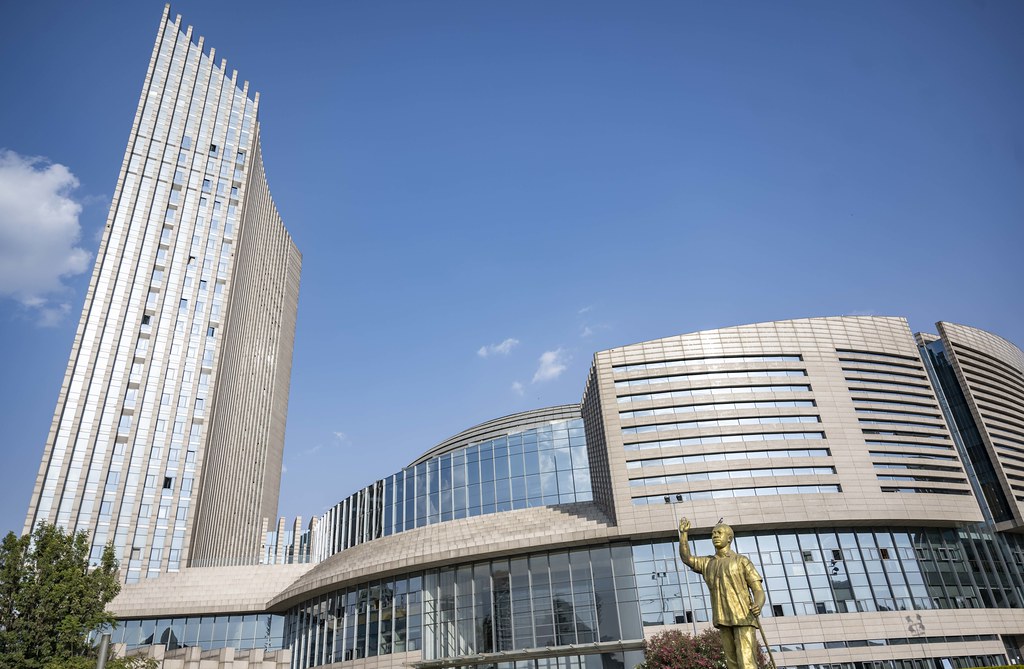Policy Forum Politique is a new publication format that aims to stimulate debate by presenting a wide range of expert opinion on a topic of national security significance to Canada. For this third edition, we ask four experts for their perspectives on Canada’s new Africa strategy.
 Nadège Compaoré | University of Toronto
Nadège Compaoré | University of Toronto
Canada has the largest foreign investment presence in Africa’s mining sector, with over 37 billion dollars in mining assets on the continent. Canada’s Africa Strategy should rethink the current terms of partnerships with mineral-rich African countries, including in regions such as the Sahel region, and go beyond economics by addressing peace and security issues. With the growing importance of Africa’s critical mineral reserves for renewable energy, countries like the Democratic Republic of Congo and its massive cobalt reserve are worthy of a deeper bilateral, diplomatic focus, which should prioritize the welfare of local communities.
Any rethinking of the mining partnership with Africa should also involve more oversight of Canadian mining companies operating in Africa. This matter thus far has been left to the companies themselves given their voluntary abidance with Corporate Social Responsibility (CSR) frameworks when it comes to engaging in extractive sectors across the continent. Beyond generating economic returns, developing a cohesive vision and strategy for mining governance partnership with African countries should be more systematically guided by environmental and human rights considerations. Fashioning this strategic vision would require more collaboration with, and regulation of, Canadian-based corporate actors in Africa, as well close alignment with existing regional standards such as the African Union’s Africa Mining Vision.
Canada’s Africa Strategy currently does not elaborate on possible mechanisms for a mining partnership. Yes, it highlights critical minerals as a priority area whose access the government seeks to facilitate for “the private sector and stakeholders”, including through a “high-level trade mission” to Africa. And indeed, the mining sector is fundamentally relevant to all five strategic areas elaborated in the overall Strategy, including national security. However, taking a Canada-Africa mining partnership seriously also means taking seriously the concept of a “home state responsibility” when it comes to Canada’s mining presence in Africa. Canada thus needs to develop a sustainable, rights-based, approach to investment. Given its past experiences with government-led CSR strategies that were designed to promote the welfare and protection of host communities where Canadian companies operate, the Canadian government knows it plays a crucial role in shaping ethical investments abroad. Canada’s Africa Strategy is the opportunity to take ownership of this role. A home state responsibility mechanism should not be contained at the bilateral level and would be more effective when positioned at regional and global levels.
Nadège Compaoré is an Assistant Professor of International Relations (IR) in the Department of Political Science at the University of Toronto Mississauga. Her work lies at the intersection of critical IR theory, International Law, African politics, global extractivism, gender and race in IR.
 Marie-Eve Desrosiers | University of Ottawa
Marie-Eve Desrosiers | University of Ottawa
Canada’s new strategy for Africa comes at an opportune moment, as international competition between different countries to increase their influence on the continent is more palpable than ever. However, what this strategy proposes, particularly in the areas of governance, support for democratic processes, and the defense of human rights, remains timid, even outdated.
The African continent has not been immune to the great democratic recession that has gripped the world for two decades. While it is home to some of the most compelling examples of a return to democracy, such as the Seychelles, it is also at the heart of a wave of coups d’état that is particularly affecting the Sahel. Elsewhere on the continent, authoritarianism continues to take root, less spectacularly than a takeover by force, but just as worrying. The number of attempts to amend the constitution to allow a president to remain in power beyond the constitutional limits has grown significantly in Africa over the past 15 years. Finally, Africa is also a context in which more and more authoritarian countries are seeking to deepen their relations, which changes the game in terms of the influence that countries like Canada can have. Times, trends, and practices have changed. Yet what Canada is proposing in its strategy is no different from the approach that pro-democracy countries have been proposing for the past ten years.
Supporting electoral processes, countering disinformation, promoting gender equality, and protecting human rights—the priorities put forward under the heading of “governance” in the new strategy—are certainly major issues. But they are also the same priorities that have dominated since well before the current democratic recession took root. These priorities have also overshadowed other essential dimensions of democratic resilience, such as strengthening the justice system, parliaments, and public audit institutions, which are now underfunded. However, the main forces of resistance to the authoritarian tendencies observed in Africa in recent years have been based on the spirit of the rule of law, the independence of the courts, and citizen mobilization within coalitions that transcend class and identity. These are also priorities that Canada should place at the heart of its strategy if it wants it to be relevant to the current governance challenges in Africa.
Marie-Eve Desrosiers holds the Research Chair in International Francophonie on political aspirations and movements in Francophone Africa. She is Professor at the Graduate School of Public and International Affairs (GSPIA).
 Nicolas Klingelschmitt | UQAM
Nicolas Klingelschmitt | UQAM
The announcement of the launch of Canada’s new strategy for Africa in March 2025 follows nearly two years of consultations with partners and experts. However, although it is presented as “new,” at first glance it does not appear to introduce any major innovations in Ottawa’s foreign policy on the continent. While not revolutionary, in order to advance its diplomatic, economic, and peace and security objectives, it must above all be accompanied by resources, align its programs and objectives with a more targeted and distinct vision of the continent’s 54 states, and emphasize strengthening ties and the visibility of opportunities on both sides.
Let’s start with the obvious: to have a good strategy, Canada must first finance it. By comparison, the Indo-Pacific strategy was accompanied by a budget of more than CAD 2 billion when it was launched in 2022. However, no specific additional disbursements have yet materialized following the announcement of Canada’s new Africa strategy.
Second, to have a good foreign policy toward its African partners, Canada must in fact have several, considering Africa in all its diversity of regions, contexts, and actors. Essentializing the continent into a single grand strategy is a mistake that carries the risk of prejudice and strategic miscalculations.
Finally, and this point is essential to implementing the previous one, Ottawa must strengthen its diplomatic network across the continent. Canada has 15 embassies and nine high commissions and, for the past two years, has had a permanent representative to the African Union (AU), but it does not have equivalent emissaries dedicated entirely to any of the eight Regional Economic Communities officially recognized by the AU, or to the monetary unions of West or Central Africa.
However, more of these strategic bilateral and multilateral relays are needed to strengthen local public and private partnerships and send a positive signal to potential Canadian investors by demonstrating Canada’s commitment not only in words, but also in financial, material, and human terms.
Nicolas Klingelschmitt is a doctoral candidate in political science at the University of Quebec in Montreal and holds a bachelor’s degree in law and political science as well as a master’s degree in international relations – international program management from the University of Lyon 3 (France).
 Falk Petegou | University of Ottawa
Falk Petegou | University of Ottawa
Canada’s new strategy for Africa should be implemented using a differentiated approach—that is, one that takes into account differences, specificities, needs, and contexts. This implies that Canada should develop an index to measure priority criteria. This Canadian index for cooperation in Africa could be updated annually to evaluate each partner and consist of qualitative indicators such as political stability, economic potential, diplomacy, climate commitment, social inclusion, and human security. Each African partner country could be ranked on a global score of 140, with 20 points for each indicator according to Canada’s priorities. The scores would be used to determine the level of compatibility with Canada’s objectives. The results would be used to determine the type of intervention. For example, Senegal and South Africa have strong economic potential and political stability, which would allow for the launch of an investment fund for local startups in partnership with Canadian companies.
Priority should be considered as the consensus on compliance with the standards set out in the implementation of intervention actions. It could be measured in key intervention sectors based on an analysis of discourse related to shared and common security. Discourse refers to statements found in administrative acts, press releases, public and official positions, testimonials, briefs, and other scientific publications. It is based on the following criteria: productivity (e.g., Canada’s declaration on peace and security in the Sahel with the launch of training programs for local actors in the protection of civilians and human rights), iterability (e.g., the repetition of the principles of conflict prevention, gender equality, and inclusion at the Canada-Africa Summit and the African Union), and social recognition (e.g., Canadian support for women’s participation in peace processes taken up by partners in the Democratic Republic of Congo).
Finally, an intervention schedule should be developed based on the priorities identified.
Falk Petegou is a visiting professor at the School of Public and International Affairs at the University of Ottawa and holds a Ph.D. in International Studies. He has been a visiting researcher at the Peace Research Institute Frankfurt (PRIF).

 Nadège Compaoré | University of Toronto
Nadège Compaoré | University of Toronto Marie-Eve Desrosiers | University of Ottawa
Marie-Eve Desrosiers | University of Ottawa Nicolas Klingelschmitt | UQAM
Nicolas Klingelschmitt | UQAM Falk Petegou | University of Ottawa
Falk Petegou | University of Ottawa






Comments are closed.